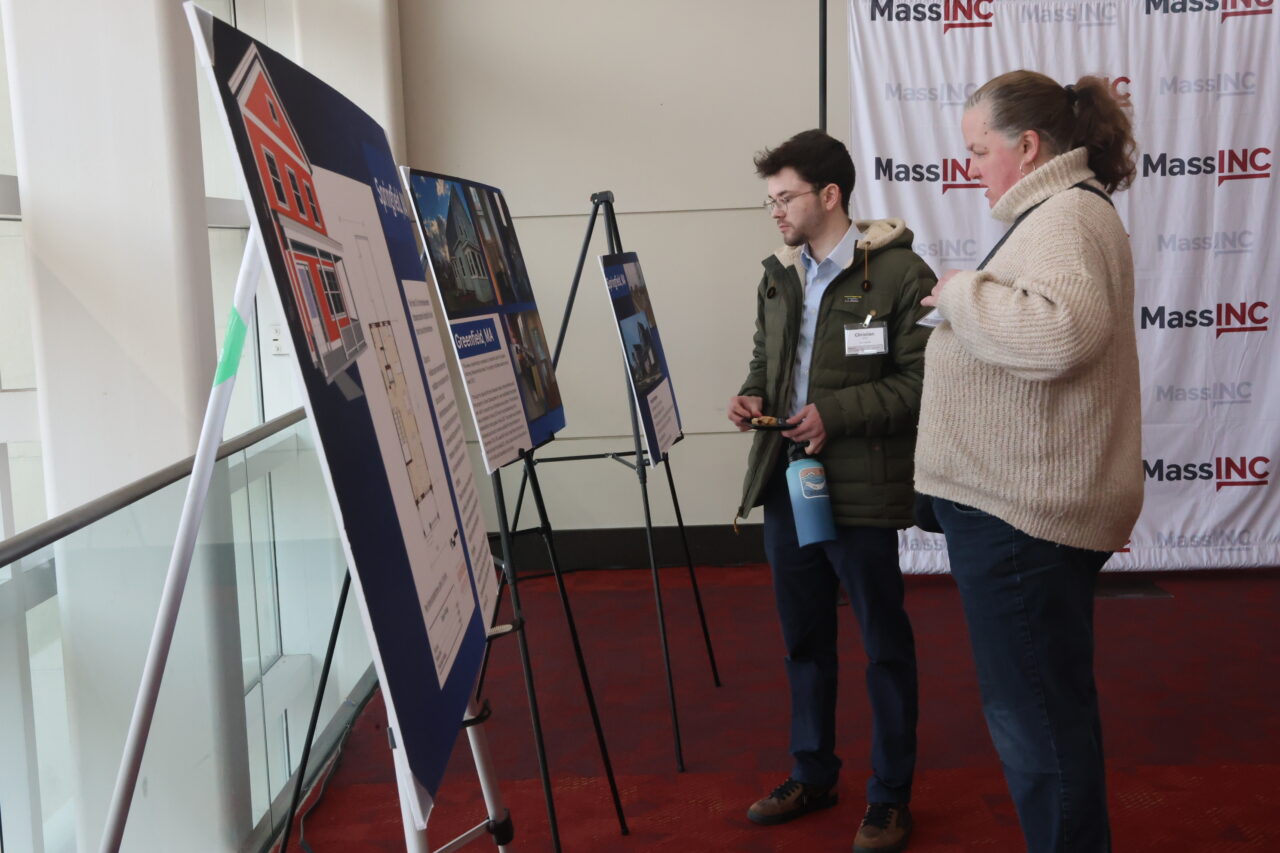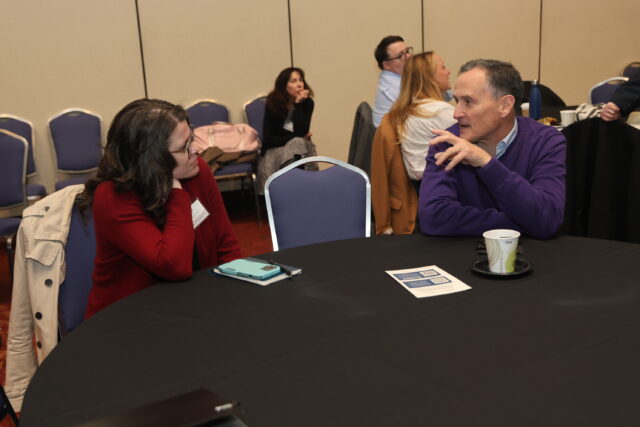
The day opened with welcome remarks from MassINC CEO, Joe Kriesberg, and Alison Mathias, Vice President of the MassMutual Foundation. Kriesberg cited data from the 2024 Gateway Cities Massachusetts Housing Monitor, which highlights how revitalizing vacant properties is not just about neighborhood beautification; it’s a housing necessity.
Secretary Ed Augustus, of the Executive Office of Housing and Livable Communities, reinforced this urgency. In a time of national uncertainty, Augustus called for Massachusetts to lead with clarity, stability, and innovation especially when it comes to reclaiming and reinvesting in communities hit hardest by disinvestment.
Attendees were also addressed by Springfield Mayor Domenic Sarno, highlighting Springfield’s own efforts to tackle vacancy and disinvestment. Mayor Sarno acknowledged the complexity of revitalization work, emphasizing the pivotal role that local leadership and regional collaboration play in driving progress. He reminded the audience that revitalizing neighborhoods requires not only technical expertise and financial tools but also political will, long-term planning, and the courage to reinvest in communities that have long been overlooked.
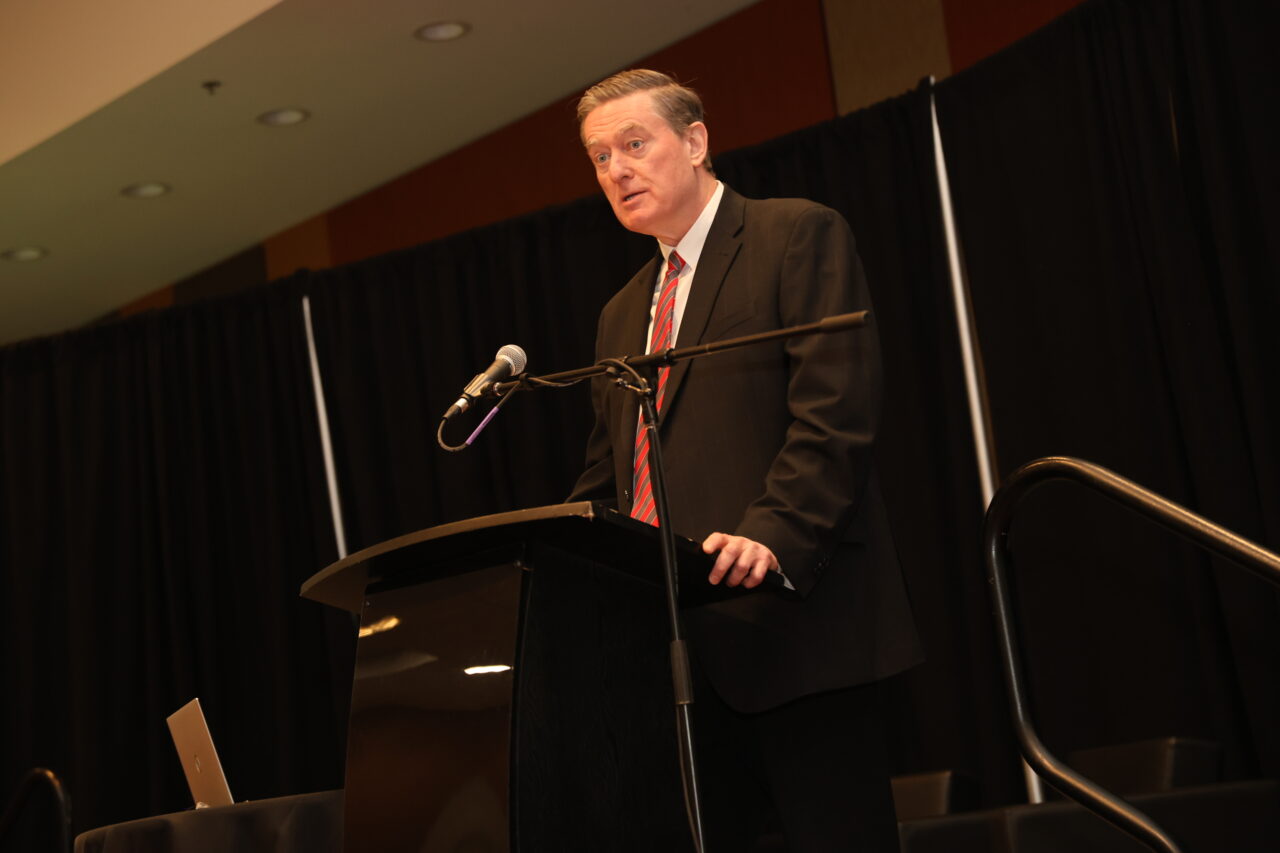
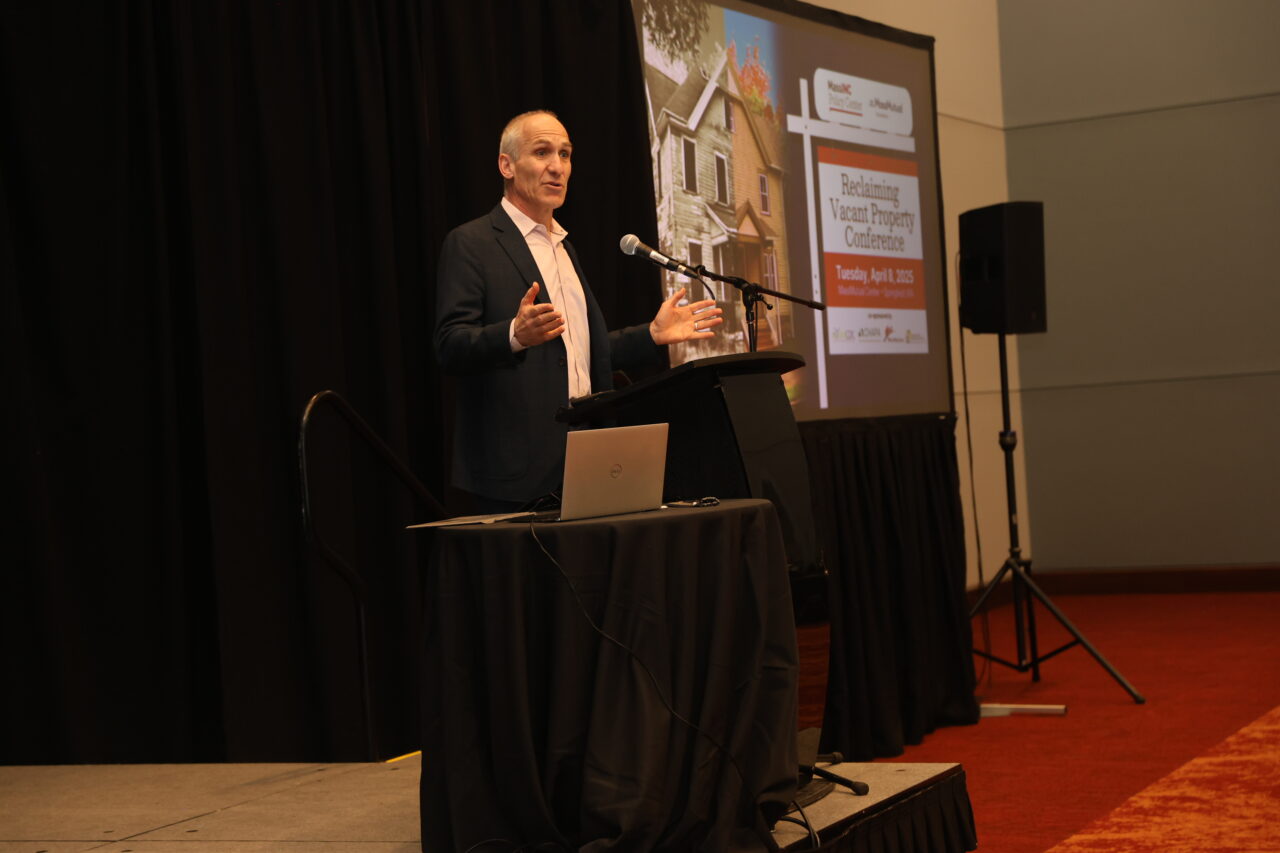
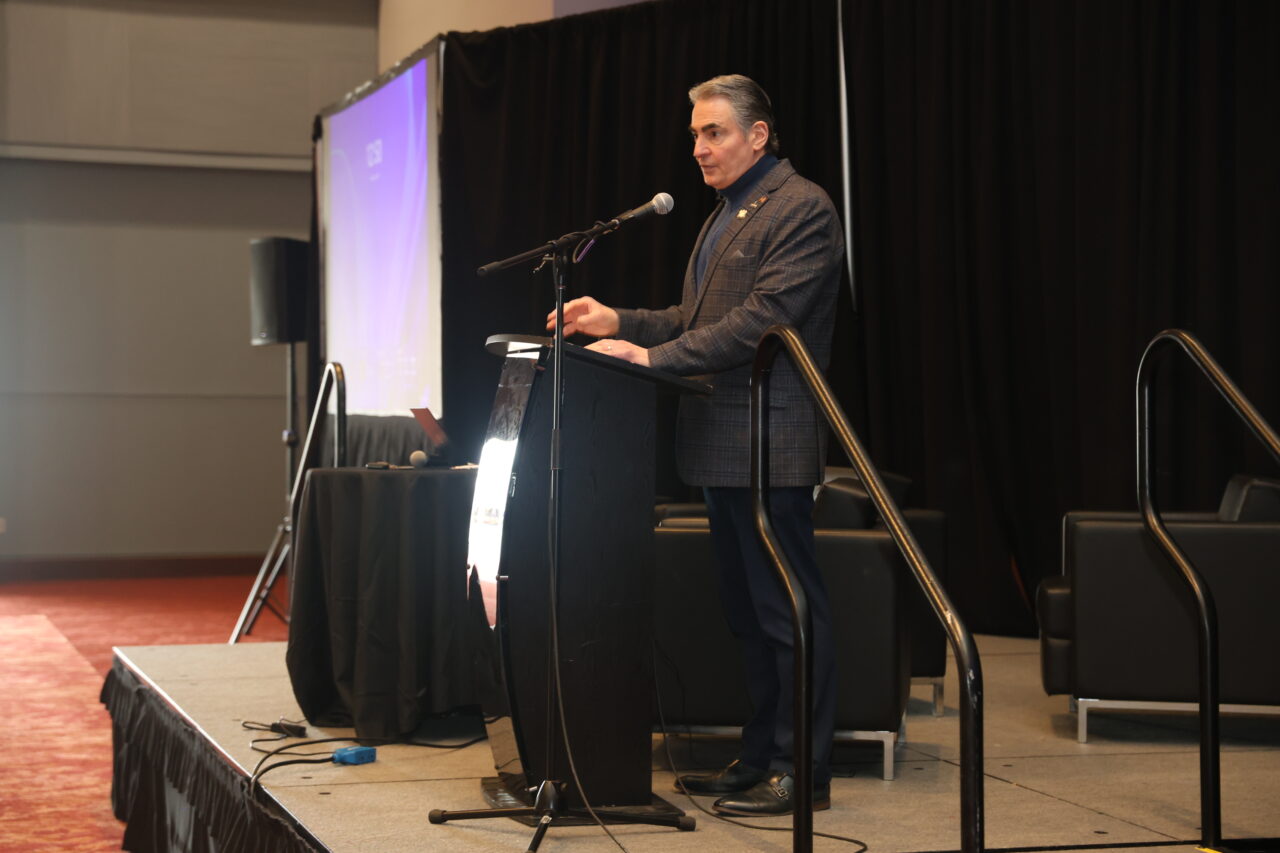
Strategic Code Enforcement and Cross-Sector Collaboration
Presenters: Steve Barlow, Danny Shaffzin (Strategic Code Enforcement Management Academy)
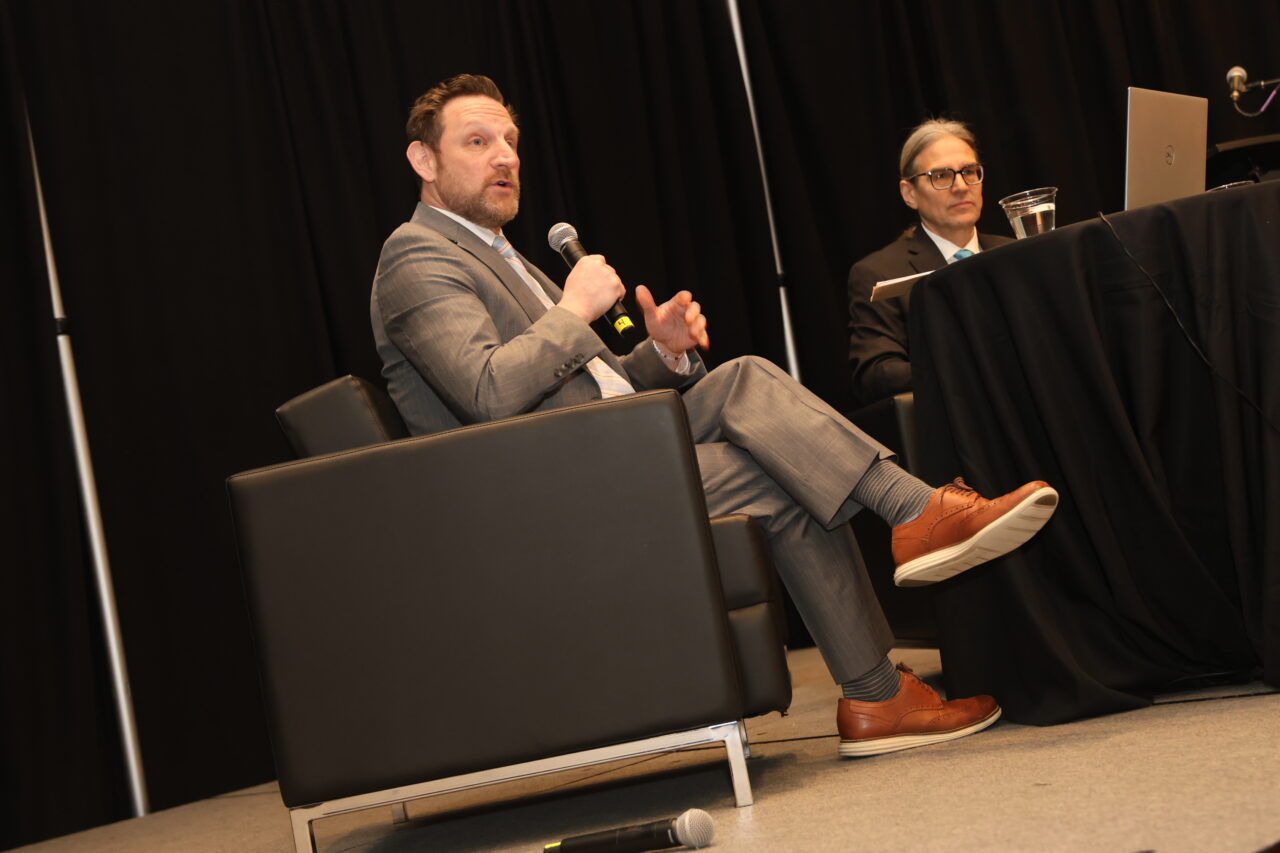
Reclaiming vacant and abandoned properties goes beyond just code enforcement—it requires a collaborative, cross-sector approach grounded in strategy, transparency, and legal expertise. In a recent presentation, Steve Barlow and Danny Schaffzin from the Strategic Code Enforcement Management Academy (SCEMA) showcased how cities like Memphis and Cleveland are driving systemic change by uniting government, nonprofits, and legal partners around shared objectives. This collaboration has resulted in policy reforms, stronger data systems, and a more unified response to property distress.
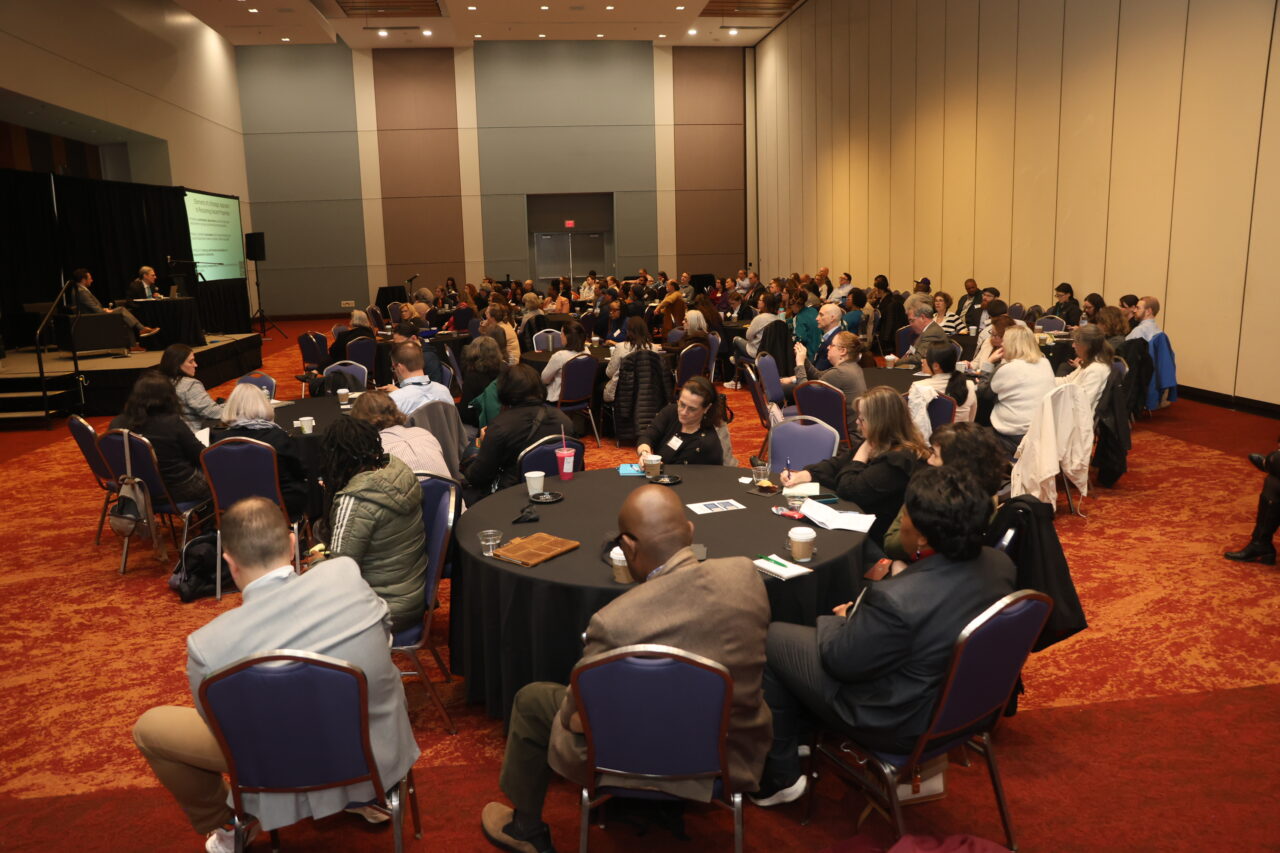
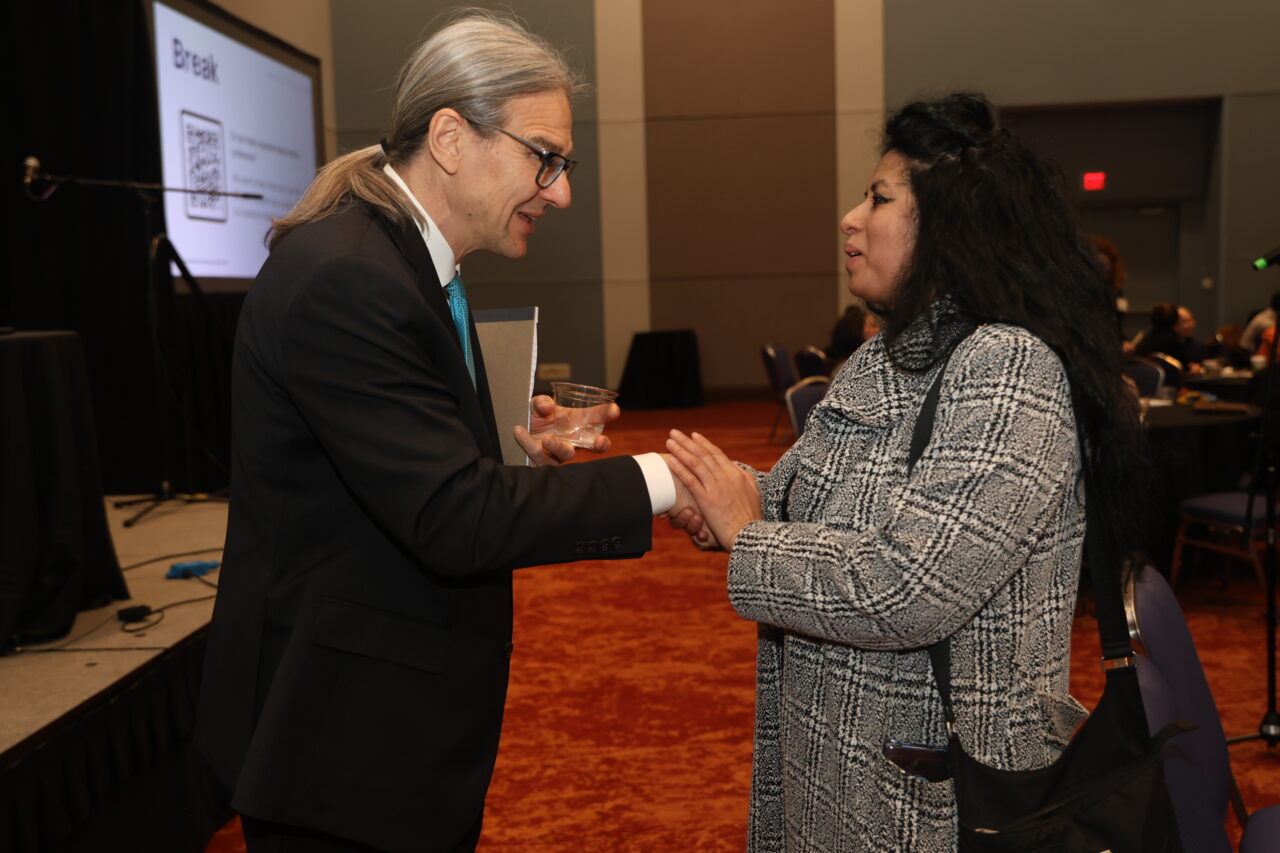
Now in its ninth year, SCEMA trains interdisciplinary teams to adopt a proactive, community-based approach to eliminating blight. The core message is clear: the solutions are already within reach, we just need to work together to make them a reality.
The session emphasized that cross-sector collaboration, not new laws or funding, is often the key to revitalizing distressed properties. Barlow and Schaffzin highlighted successful models in Memphis and Cleveland, where legal clinics, nonprofits, and municipal agencies align efforts in code enforcement, land banking, and receivership. The key takeaway: sustainable change is built from the ground up, driven by consistent communication, legal capacity, and a shared commitment to the mission.
Key elements of a strategic approach include:
- Coordinated use of tools like receivership, land banking, tax sales, and code enforcement
- Property-specific processes for vacant, owner-occupied, and renter-occupied buildings
- Ongoing stakeholder communication and public transparency
- Legal capacity to identify and remove barriers
- A central convener to keep the work moving forward
Interested in taking the next step? The application deadline for the 9th Annual Strategic Code Enforcement Management Academy is April 30, 2025. Held June 11–13 at the University of Memphis School of Law, this year’s program includes not only the two-day Academy but also optional access to two bonus offerings; an in-depth community tour on June 11 and a special receivership roundtable hosted by the Vacant Property Receivership Consortium starting June 10. Visit the SCEMA website for more information.
Developments in Receivership and Tax-Taking
Moderator: Dina Fein (MassINC Greg Torres Senior Fellow) Panelists: Amber Villa (Chief, Neighborhood Renewal Unit, Massachusetts Attorney General’s Office) Gerry McCafferty (Director of Housing, City of Springfield)
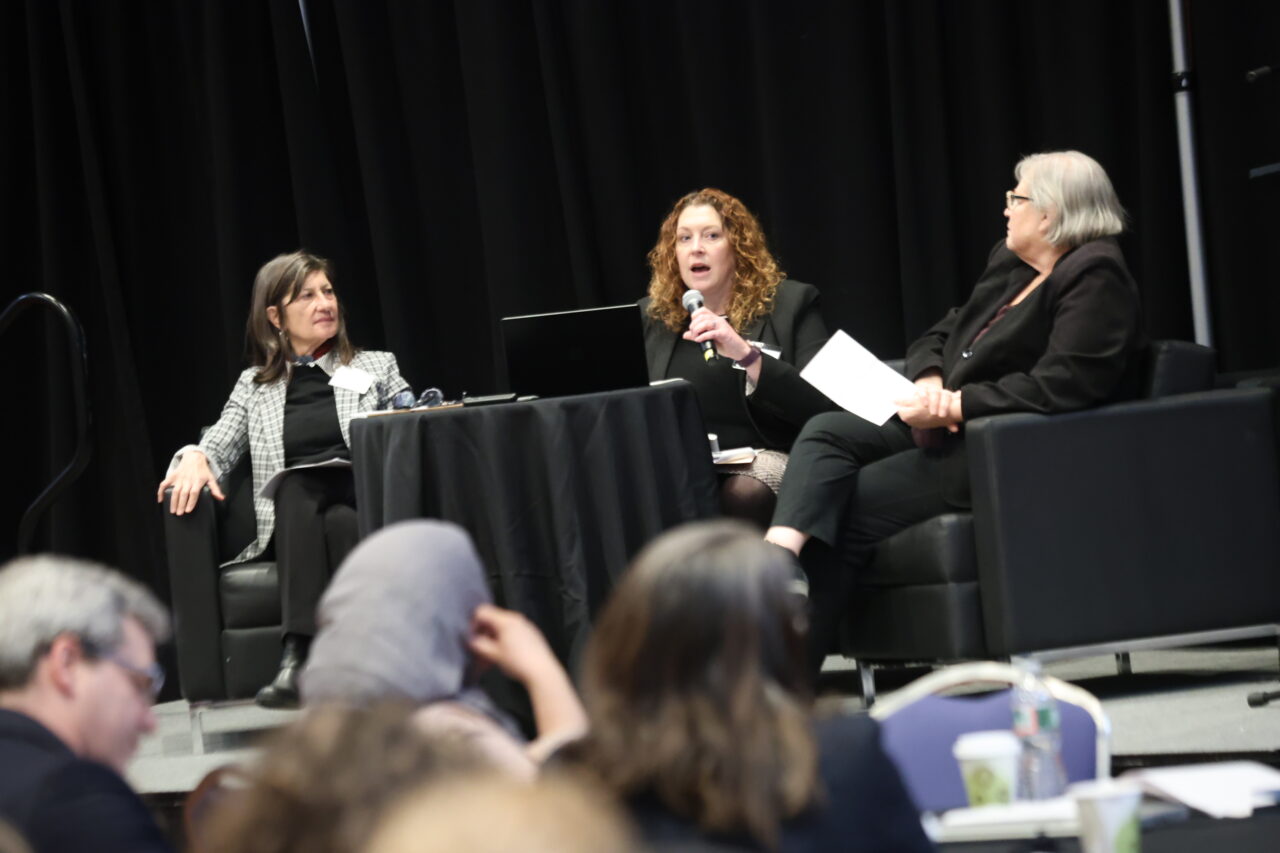
This panel explored the evolving legal and policy frameworks shaping how cities and towns reclaim distressed properties, with a focus on two crucial tools: receivership and tax foreclosure.
Panelists provided updates on recent state-level reforms, including significant changes to the receivership statute under the Affordable Homes Act and comprehensive revisions to the Commonwealth’s tax foreclosure process following the Supreme Court’s Tyler v. Hennepin County ruling.
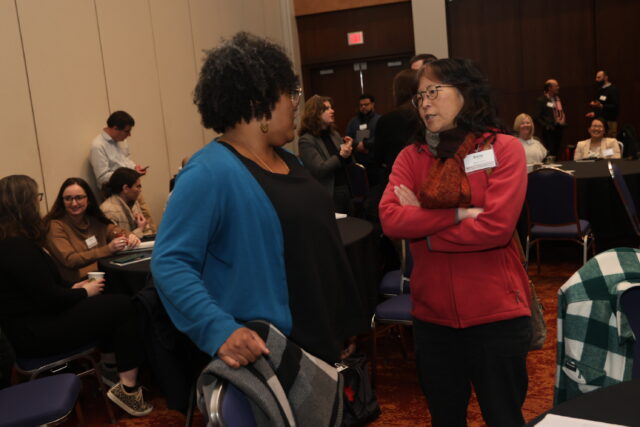
In Developments in Receivership and Tax-Taking, Dina Fein, Amber Villa, and Gerry McCafferty delved into how legal reforms and innovative models are transforming Massachusetts’ approach to abandoned properties. They discussed how the Massachusetts Affordable Homes Act has expanded the receivership statute, enabling nonprofits to purchase properties at fair market value, thus creating new pathways to affordable homeownership. The conversation also explored the state’s recent overhaul of its tax foreclosure process, prompted by the Tyler v. Hennepin County Supreme Court decision, which now mandates the return of surplus equity to former property owners and introduces stricter procedures for selling or retaining foreclosed homes.
Key takeaways:
- Receivership remains a remedy of last resort but now includes pathways for nonprofit acquisition at fair market value
- The Western MA pilot introduces a court-sanctioned process to transfer distressed properties to mission-driven developers
- New rules require itemized accounting, appraisal standards, and excess equity disbursement timelines
- Massachusetts’ tax foreclosure law was amended in 2024 following the Tyler decision to protect homeowner equity
- Municipalities must now choose between retaining or selling foreclosed properties, under stricter conditions
Programs to Help Finance Your Projects: Local Innovation Meets Strategic Investment
Moderator: Beverly Estes-Smargiassi (NSP Program Manager, MassHousing)
Panelists: Josh Amaral (Director, Office of Housing & Community Development, City of New Bedford), John Gilbert (Real Estate Development Manager, Way Finders), Carolyn Valli (CEO, Central Berkshires Habitat for Humanity)
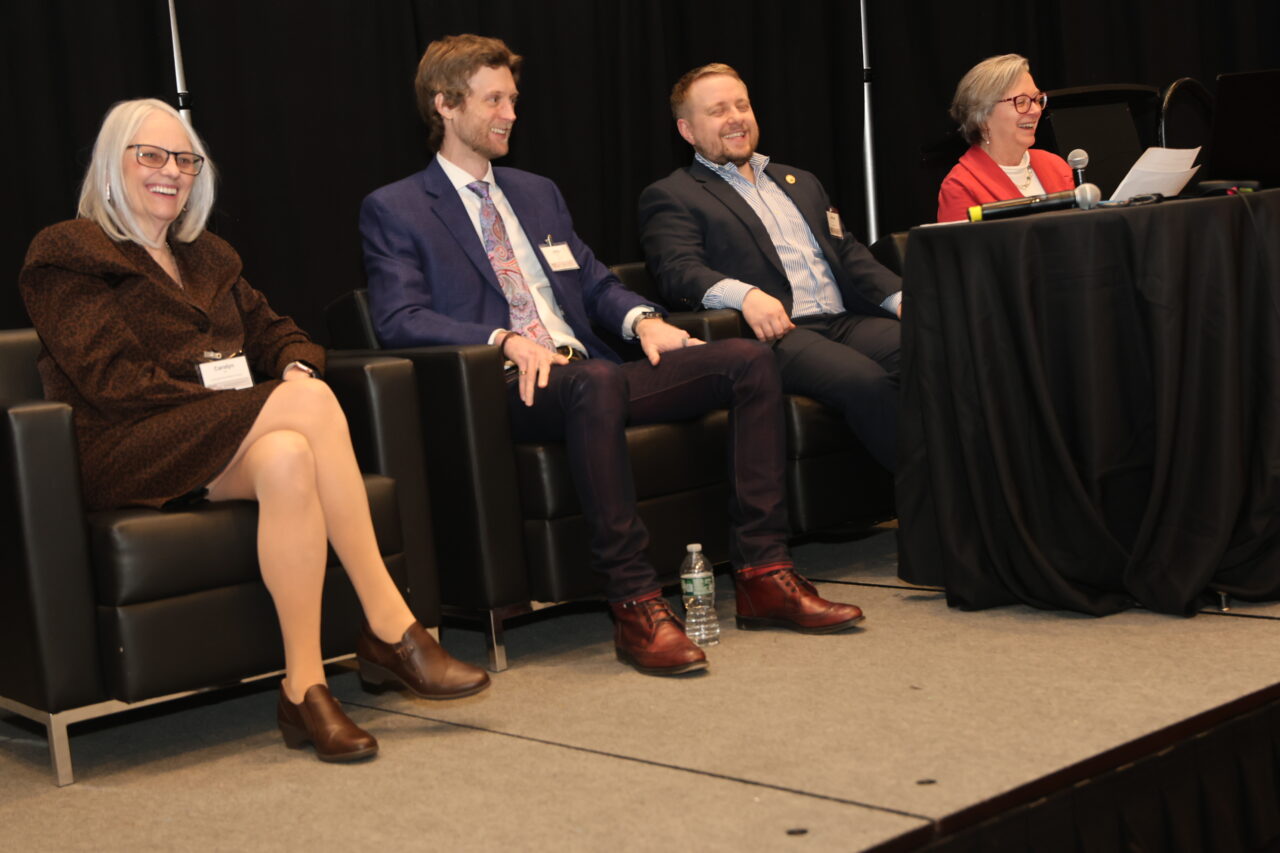
The third panel of the conference focused on how local governments, nonprofit developers, and housing agencies are leveraging a range of financial tools to bring vacant properties back to life and into the hands of first-time homebuyers. Speakers from MassHousing, Central Berkshires Habitat for Humanity, Way Finders, and the City of New Bedford shared case studies demonstrating how public-private partnerships, creative financing, and community-centered design can overcome barriers to redevelopment and ownership.
The Neighborhood Stabilization Program (NSP), ARPA funds, CPA grants, and other flexible capital sources are being used to rehabilitate or rebuild homes in disinvested neighborhoods. From Springfield’s City of Homes initiative to Pittsfield’s WestSide Rebirth, the goal remains the same: create affordable, owner-occupied housing while building generational wealth in historically excluded communities. Panelists also highlighted the logistical hurdles like title issues, tax liens, and overwhelmed heirs and how tailored strategies and layered funding can unlock stalled properties.
Key takeaways:
- NSP supports rehab and new construction of 1–15 unit properties with affordability requirements
- Way Finders’ “City of Homes” pilot is using receivership and nonprofit acquisition to stabilize Springfield neighborhoods
- New Bedford’s strategy tackles both legal and financial barriers with cross-agency coordination
- All panelists stressed the importance of combining subsidy, strategy, and strong partnerships to scale outcomes
- Habitat’s Pittsfield projects show how layered funding (NSP, ARPA, CPA) can stretch impact while keeping homes affordable
As the conference came to a close, participants expressed a shared sense of urgency and optimism. The day reinforced what many in the room already knew: reclaiming vacant properties is possible, but it requires collaboration, creativity, and staying power. Whether through legal reform, financing tools, or neighborhood partnerships, the path forward is clearer when we walk it together.
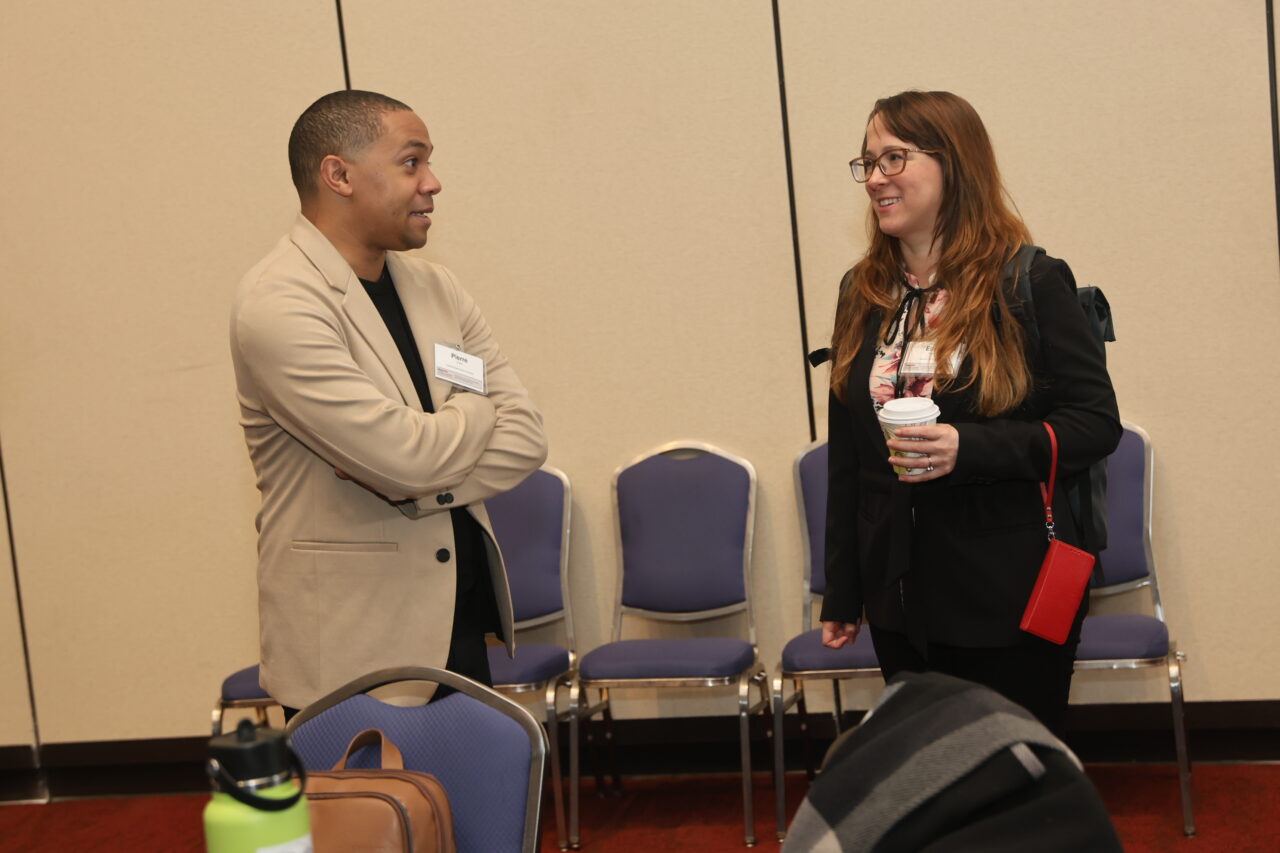
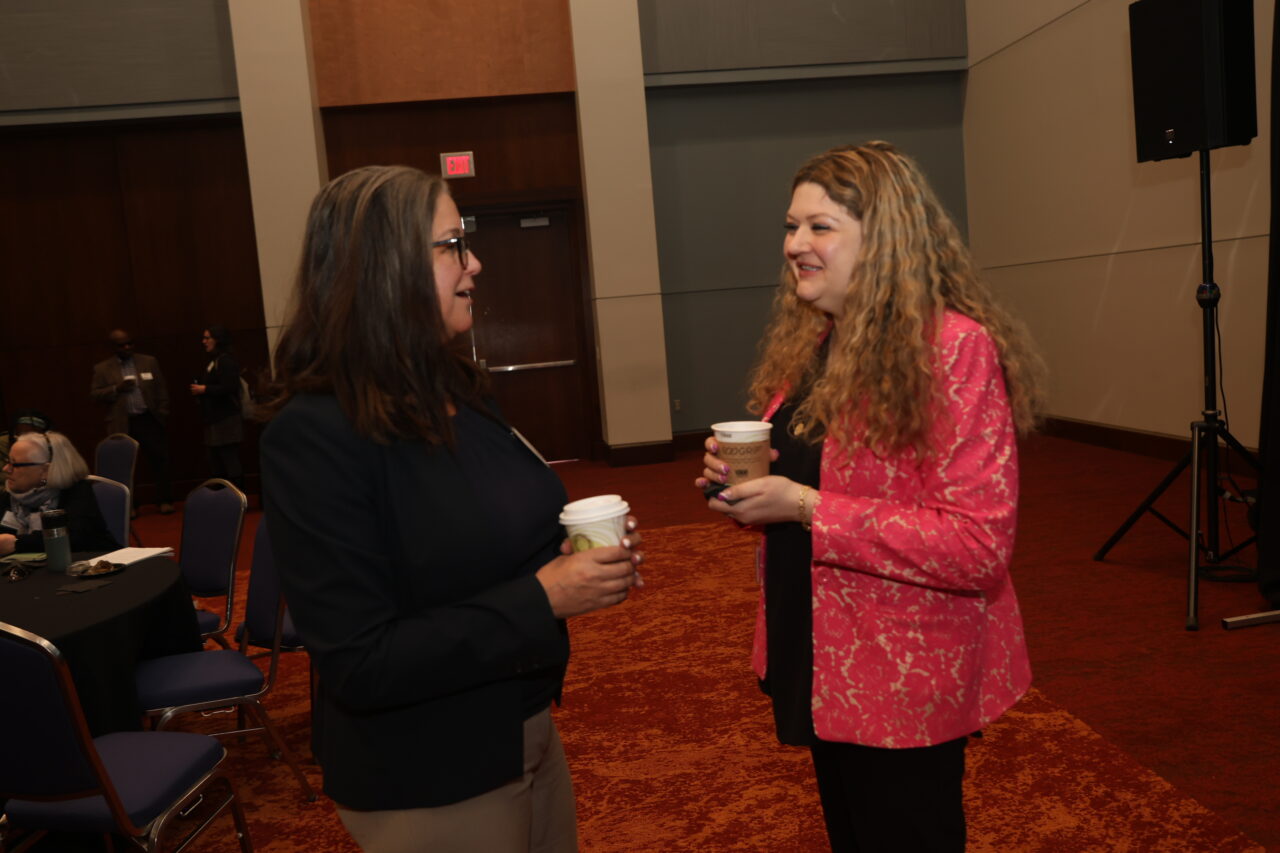
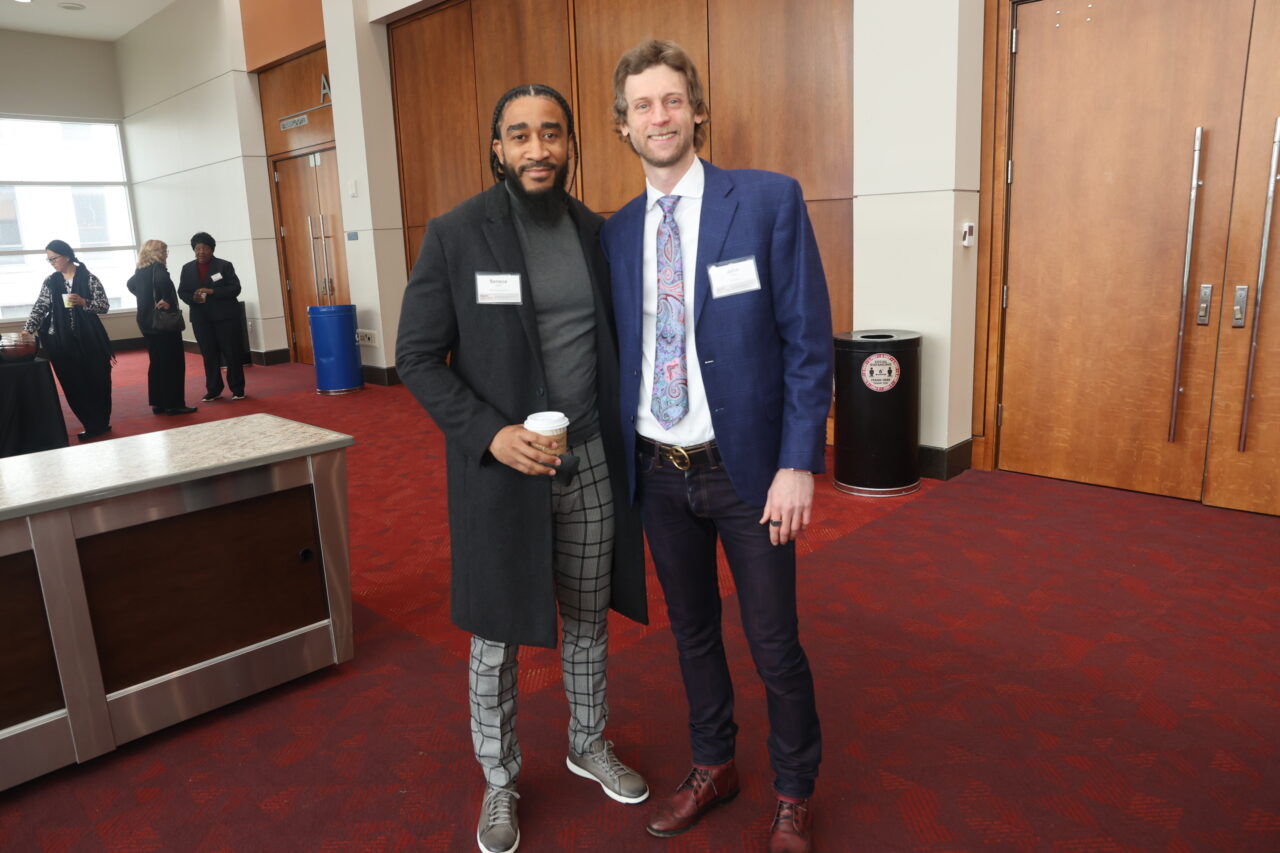
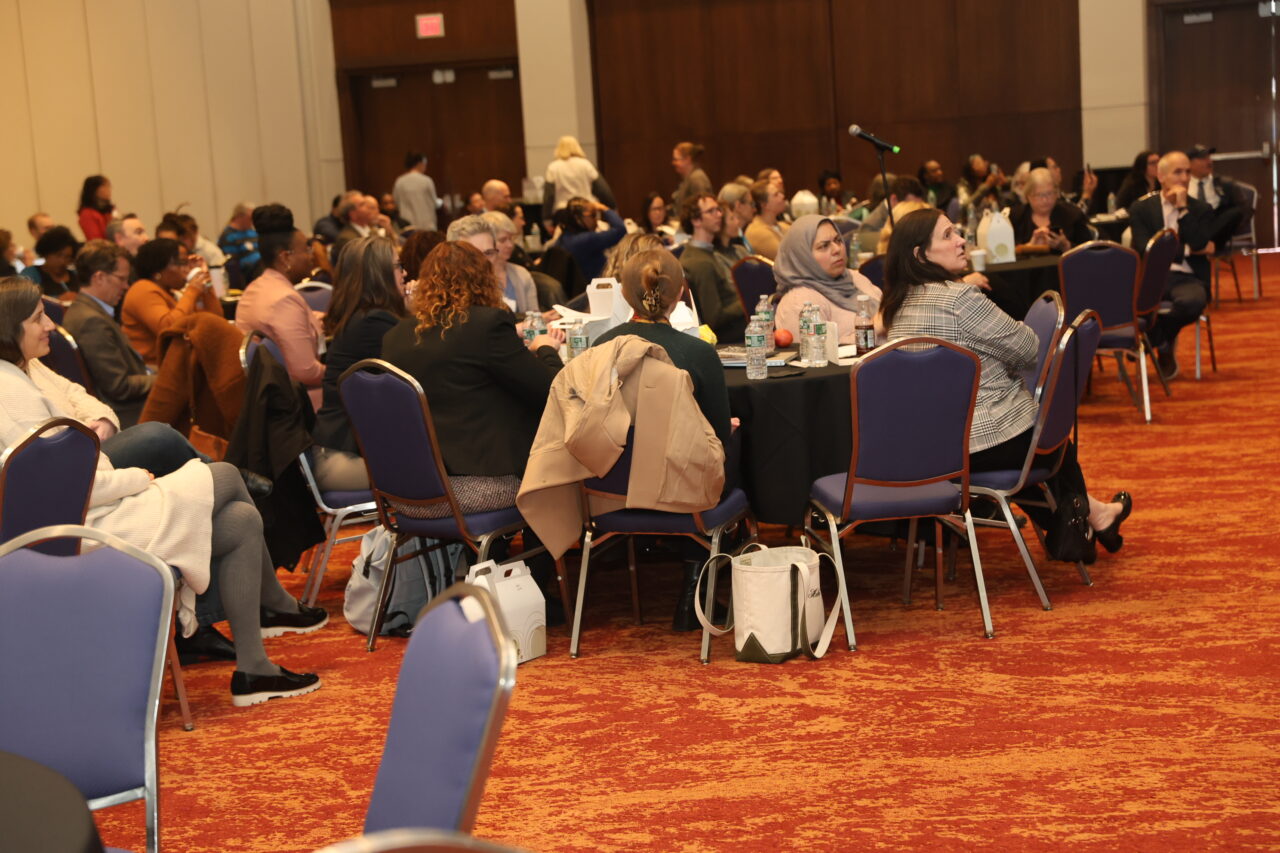
Thank you to our presenting partners from the MassMutual Foundation, as well as our co-sponsors Citizens’ Housing & Planning Association (CHAPA), MassHousing, Massachusetts Association of Community Development Corporations (MACDC), and Massachusetts Housing Partnership.
Conference Q&A: Responses from Speakers
Your thoughtful questions helped drive a powerful conversation around community revitalization and pathways to affordable housing. We’ve compiled responses from our speakers to keep the momentum going and support actionable solutions.
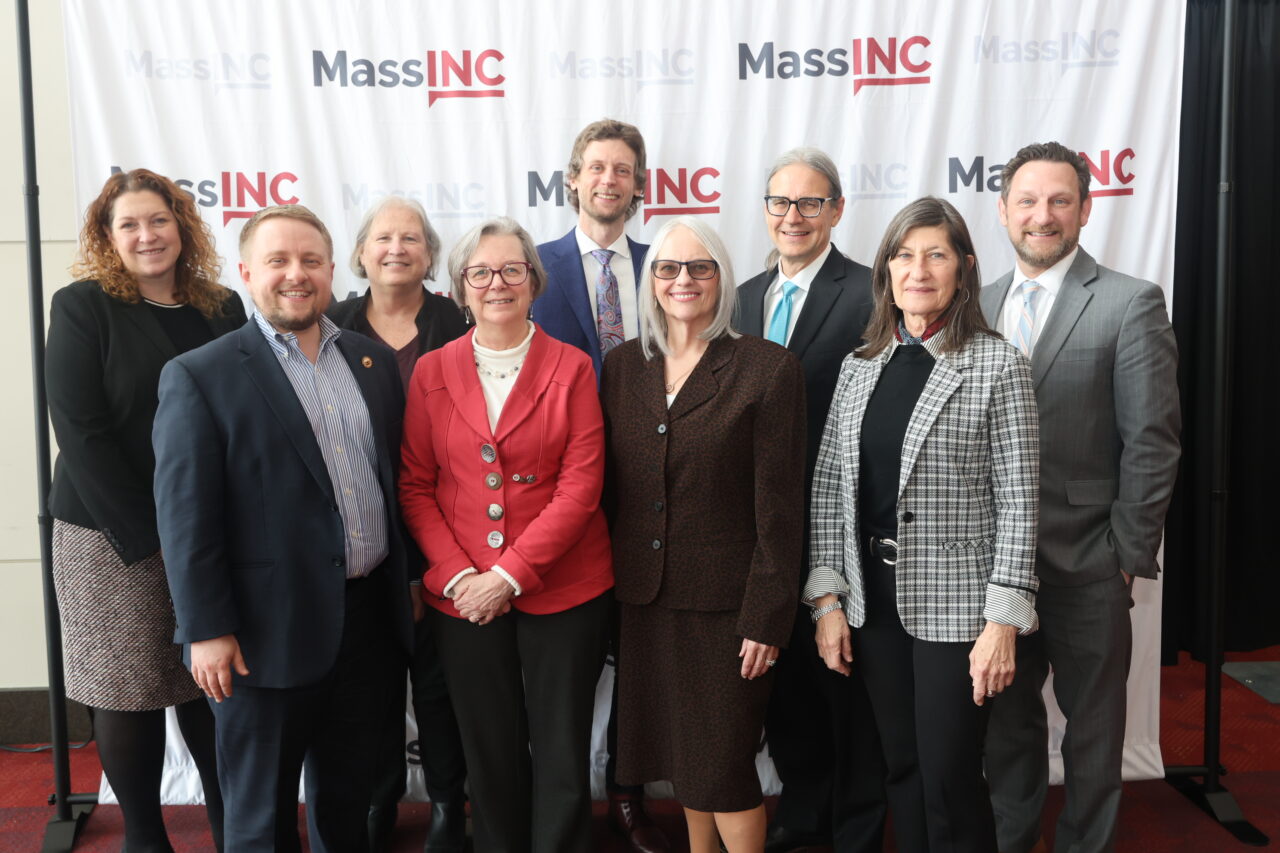
Speakers & Panelists
In order of appearance. Click to read speaker information.
Alison Mathias, Head of Community Responsibility Strategy, MassMutual and Vice President of the MassMutual Foundation

Alison Mathias is a social changemaker, connecting private sector resources to build capacity for community-driven solutions that instigate greater access to opportunity for all.
As the leader of MassMutual’s community impact strategy, Ali helped establish, develop, and now serves as the Vice President of the MassMutual Foundation. Initiating a transition from transactional philanthropy to catalytic philanthropy, she engaged stakeholders in co-creating solutions towards shared goals in alignment with MassMutual’s vision of financial well-being for all Americans. Ali is now advancing the MassMutual Foundation toward transformative philanthropy, seeking collaboration that meets the national scale of challenges to achieving financial resilience.
Secretary Edward Augustus, Executive Office of Housing and Livable Communities
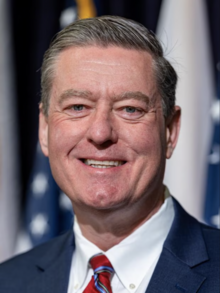
Edward Augustus is the Secretary of the Executive Office of Housing and Livable Communities. Augustus served as City Manager of Worcester, functioning as the Chief Administrative and Executive Officer of the Gateway City of more than 200,000 people, from 2014-2022. During his tenure, he oversaw the commitment or distribution of $25.3 million in Community Development Block Group, HOME Investment Partnerships Program, and Worcester Lead Abatement and Healthy Homes Program funds to develop or preserve more than 2,000 affordable housing units throughout the City.
Augustus also dedicated $30 million of the ARPA funds coming into the city to housing, including $15 million for the Affordable Housing Trust Fund. As City Manager, Augustus managed a $750 million budget, as well as the $90 million, 20-year Urban Revitalization Plan. Notably, he spearheaded the $240 million landmark redevelopment of Worcester’s Canal District. Prior to joining the City of Worcester, Augustus served as Director of Government & Community Relations for the College of Holy Cross, State Senator for the 2nd Worcester District, Chief of Staff for Congressman Jim McGovern, and Chief of Staff to the Assistant Secretary for Intergovernmental and Interagency Affairs at the U.S. Department of Education under President Clinton’s Administration. He most recently served as Chancellor of Dean College.
Steve Barlow and Danny Schaffzin, Co-Founders of the Strategic Code Enforcement Management Academy (SCEMA)
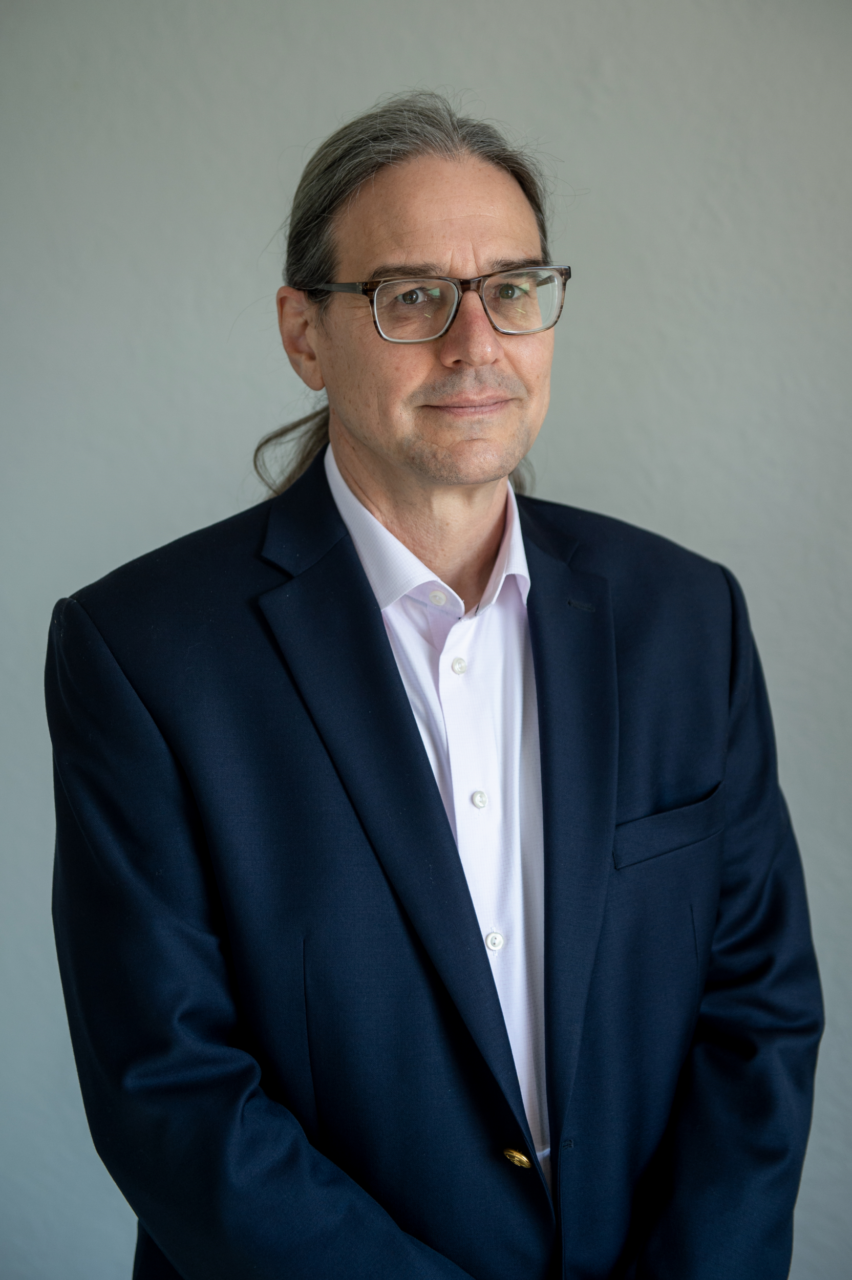

Steve Barlow and Danny Schaffzin are at the forefront of neighborhood preservation and blight abatement efforts in Memphis, Tennessee. With extensive experience in law, community development, and legislative advocacy, they have been instrumental in shaping policies and legal strategies to combat property neglect and strengthen urban neighborhoods.
Steve Barlow serves as Vice President and General Counsel of The Works, Inc. and previously led Neighborhood Preservation, Inc. as President. Since 1995, he has been deeply involved in community organizing, legislative advocacy, and neighborhood revitalization. His work includes utilizing civil litigation in Shelby County Environmental Court to hold negligent property owners accountable, as well as managing public nuisance litigation for the City of Memphis and the Downtown Memphis Commission. Steve also co-founded and teaches the Neighborhood Preservation Clinic at the University of Memphis School of Law, where law students engage in anti-blight litigation.
Danny Schaffzin is an Associate Professor of Law and Director of Experiential Learning at the University of Memphis Cecil C. Humphreys School of Law. As Co-Director of the Neighborhood Preservation Clinic, he leads faculty and law students in representing the City of Memphis in legal action against blighted properties. In addition, he serves as a Senior Assistant City Attorney for Neighborhood Preservation, further solidifying his impact on citywide efforts to improve housing conditions.
Together, Barlow and Schaffzin have played a pivotal role in the Strategic Code Enforcement Management Academy (SCEMA)—an educational initiative dedicated to strengthening the capacity of leaders involved in state and municipal code enforcement. With backing from the University of Memphis and Neighborhood Preservation, Inc., and with initial funding from the Kresge Foundation, SCEMA launched in 2017 as a first-of-its-kind program providing comprehensive training to public officials, attorneys, urban planners, and community advocates. Their vision is rooted in the collaborative efforts that led to the Blight Elimination Charter, a groundbreaking 2016 agreement uniting municipal, county, and public interest leaders in Memphis around a shared commitment to eradicating property blight.
Through their legal expertise, advocacy, and educational leadership, Barlow and Schaffzin continue to make Memphis a national model for innovative, community-driven solutions to urban blight.
Dina Fein, MassINC Torres Senior Fellow and Retired Housing Court Judge
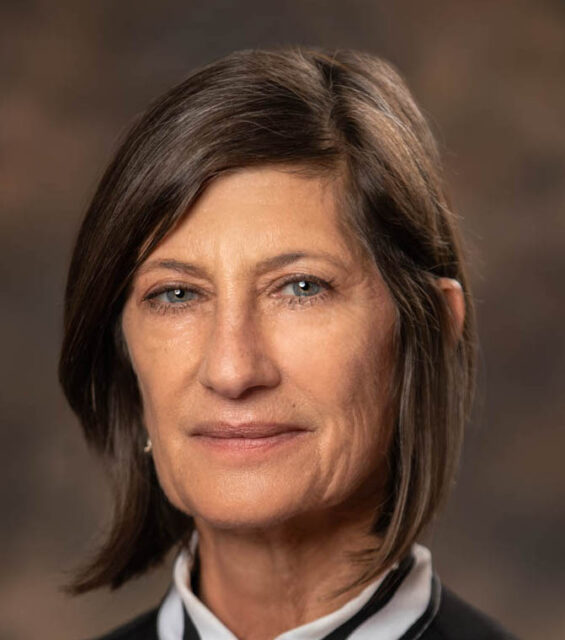
Dina Fein is a retired judge and thought leader focused on advancing access to justice, neighborhood stabilization, and affordable homeownership. Having served on the Massachusetts Housing Court for 21 years, Judge Fein has subject matter expertise in all areas of the law related to housing and a unique perspective on the role of housing on individuals, families, and communities.
Since retiring from the bench, Judge Fein has been a leading advocate at the intersection of initiatives to enhance access to justice and promote housing stability. Judge Fein designed and operationalized the City of Homes project in Springfield, Massachusetts, which seeks to transfer vacant distressed properties to nonprofits for rehabilitation and affordable sale to income-eligible first-time homebuyers. She assisted in obtaining $3M in seed funding for the project, which she is now helping to scale beyond Springfield. A founding member of the Vacant Property Receivership Consortium at the Cecil C. Humphreys School of Law at the University of Memphis, Judge Fein is also the Interim Director at the Western New England School of Law Center for Social Justice.
Appointed to the Western Division of the Massachusetts Housing Court Department in 1999, Judge Fein became First Justice in 2008 and was cross-designated to sit in the District Court, Juvenile Court, and Superior Court departments. In 2009, Judge Fein was appointed by the Chief Justices of the Supreme Judicial Court and the Trial Court to lead Access to Justice initiatives across the Massachusetts court system, launching and operationalizing statewide efforts to simplify court processes, expand legal assistance programs, and better accommodate the public. A recipient of judicial excellence awards from the Massachusetts Bar Association and the Massachusetts Judges Conference, Judge Fein has served on numerous judicial and professional committees, including the Massachusetts Access to Justice Commission (Executive Committee), the Trial Court’s Strategic Leadership Team (Domain Lead), and the Statewide Steering Committee for the Tenancy Preservation Program (Chair).
A graduate of Emory College and the Emory University School of Law, Judge Fein began her career with the Atlanta Legal Aid Society and was a partner in Fein, Pearson, Emond & Fein in Springfield for 14 years. An Adjunct Professor at Western New England University School of Law, Judge Fein has guest lectured at Harvard Law School, Suffolk University Law School, and New England School of Law, and is a frequent speaker around the county on the topics of access to justice and housing stability.
Gerry McCafferty, Director, Office of Housing, City of Springfield
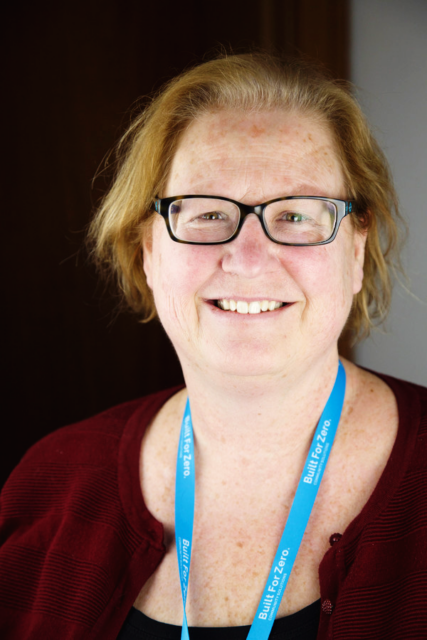
Gerry McCafferty is the Housing Director for the City of Springfield. In that role, she oversees City funding and policy regarding housing development, neighborhood stabilization, homeownership and property redevelopment initiatives, and homeless and special needs housing.
Gerry led Springfield’s recovery efforts coming out of the Great Recession, overseeing the City’s Neighborhood Stabilization Program work. She coordinated the city’s housing development following the 2011 tornado that destroyed hundreds of units of housing. She has been instrumental in designing programs and bringing in millions of dollars of grant funding to support housing rehabilitation for homeowners.
Gerry has been with the City since 2006. Previously, she was a legal services housing attorney for 15 years. She has a law degree from Georgetown University and a master’s degree in Urban and Regional Planning from the University of Colorado-Denver.
Amber Villa, Chief of the Neighborhood Renewal Division, Massachusetts Attorney General’s Office
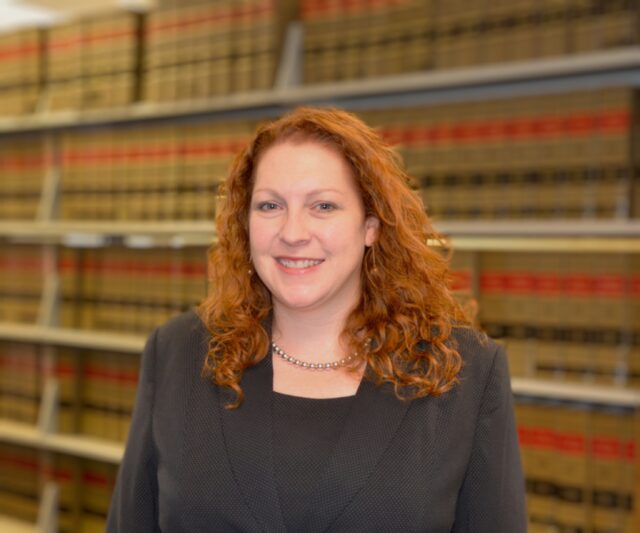
Amber Villa is the Chief of the Neighborhood Renewal Division in the Massachusetts Attorney General’s Office, leading efforts to revitalize abandoned properties, expand affordable housing, and support municipalities in ensuring safe, habitable homes.
The Neighborhood Renewal Division, created from the Attorney General’s Abandoned Housing Initiative (AHI), uses the enforcement authority of the State Sanitary Code to turn around abandoned residential properties. Partnering with cities and towns, the division identifies negligent property owners and urges them to make repairs. If they refuse, attorneys petition the courts to appoint a receiver to bring the property up to code, helping restore homes for Massachusetts families. Since 2017, AHI has revitalized over 450 properties in 146 communities and recovered more than $1 million in unpaid municipal fees.
Villa has been a key figure in housing policy, serving as Director of AHI since 2016. Since joining the Attorney General’s Office in 2008, she has worked on major housing and mortgage lending cases, including the National Mortgage Settlement, and helped launch the AGO’s HomeCorps program for foreclosure relief. She also led tobacco enforcement efforts, helping implement statewide e-cigarette regulations.
Previously, Villa practiced law at Dechert LLP and Sally & Fitch. She holds a law degree from Boston College Law School and a bachelor’s degree from Colorado College. She lives in Cambridge with her husband and son.
Mayor Domenic Sarno, City of Springfield
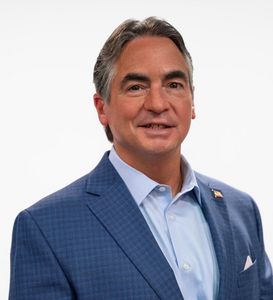
Mayor Domenic J. Sarno, Springfield’s longest-serving mayor, is dedicated to economic development, financial stewardship, and community-driven initiatives. First elected in 2007, he is now in his historic sixth term, focusing on quality-of-life improvements, education, housing, and public safety.
Sarno has prioritized housing development, overseeing major investments in affordable and market-rate housing, neighborhood revitalization projects, and homeownership initiatives. His administration has advanced projects like the Gemini Townhomes, 31 Elm Street redevelopment, and numerous housing construction and improvement efforts to expand access to quality living spaces.
Sarno has guided the city through significant challenges, including natural disasters, a recession, and the COVID-19 pandemic, while maintaining Springfield’s highest-ever bond rating. His administration has overseen $5 billion in public and private investment, revitalizing the city’s economy, arts, and culture.
A strong advocate for fiscal responsibility and community engagement, Sarno continues to lead efforts that ensure a prosperous future for all Springfield residents.
Josh Amaral, Director of Housing and Community Development, City of New Bedford

Josh Amaral proudly serves the City of New Bedford as the Director of the Office of Housing & Community Development, an excellent team devoted to responding to community needs, developing housing & public facilities, alleviating homelessness, and supporting the city’s non-profits and other institutions. In 2023, responding to the regional housing crisis, Josh led the development of Building New Bedford, the City’s comprehensive strategy to increase housing development and related services. In 2024, the office took on management responsibility for the New Bedford Redevelopment Authority.
Josh previously served as Assistant Executive Director at PACE, New Bedford’s Community Action Agency, serving over 30,000 individuals each year ranging from early childhood and adult education to health, housing, food, and other basic needs supports.
He holds a B.A. in Political Science and Master of Business Administration with a concentration in Public Management from UMass Dartmouth, where he was a Commonwealth Scholar. A product of public schools and a proud graduate of New Bedford High School, Josh served on the New Bedford School Committee for eight years, winning election as the youngest official in the city’s history. He is a lifelong New Bedford resident, living in the city with his wife Sharon, son Jack, and dog Carly.
Beverly Estes-Smargiassi, Neighborhood Stabilization Program Manager, MassHousing
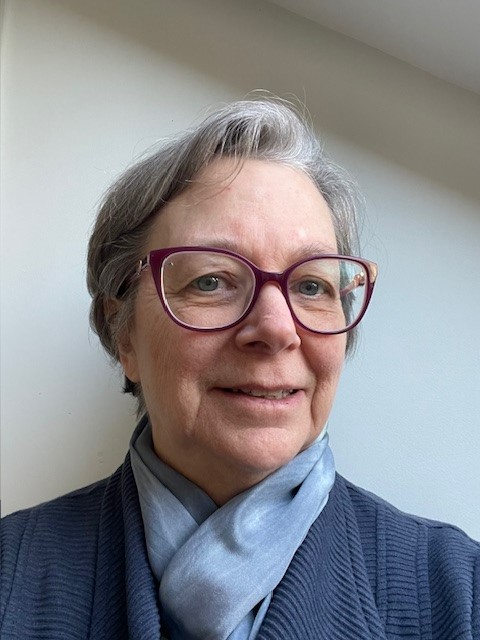
Beverly Estes-Smargiassi joined MassHousing as the Program Manager for the Neighborhood Stabilization Program (NSP) in January 2022, to start up and manage the program. NSP offers grants to non-profits and municipalities to rehab or reconstruct small residential properties throughout the commonwealth. In addition to NSP, Beverly manages the Gateway Housing Rehabilitation Program and oversees the Fire Sprinkler Safety Program and Center for Community Recovery Innovations, which are focused on expanding and improving substance use disorder recovery living.
Prior to joining MassHousing, Beverly was the Assistant Director for Preservation and Community Development at the Boston Mayor’s Office of Housing, where she focused on preserving and recapitalizing affordable units, and also worked on implementing two Choice Neighborhood grants. Her housing and community development experience spans more than four decades, including as a planning and community development consultant to communities in Massachusetts and Connecticut, and as development staff for Dorchester Bay Economic Development Corporation.
She has served as a volunteer Board member for two CDC’s: Urban Edge Housing Corporation and Fenway Community Development Corporation. Beverly has a Bachelor of Arts Degree in Political Science from Gordon College, in Wenham, MA.
John Gilbert, Real Estate Development Project Manager, Way Finders

John Gilbert is the Real Estate Development Project Manager for Way Finders. He has spent the past ten years occupying various leadership roles within the built environment. He brings a unique vision to projects, informed by extensive experience as both an Architect and a Real Estate Developer. John has worked both nationally and internationally for public, private, for-profit, and non-profit enterprises across California, Ecuador, and Massachusetts. His educational background in Environmental Studies, Architecture, and a finance-focused MBA has given him a wide range of knowledge and experience that he brings to his project involvement.
John’s early career experience as a Massachusetts Registered Architect was heavily weighted towards the design of complex, mixed-use urban infill projects within the Boston region. John’s current role as a Real Estate Development Project Manager with Way Finders, a Springfield, Massachusetts based non-profit and Community Development Corporation, has provided him with ample exposure to the multifarious challenges, needs, and opportunities inherent within the Western Massachusetts region and its underlying communities. He has been deeply involved on the “City of Homes” pilot project, a philanthropic and grant-funded effort to revitalize Springfield neighborhoods and build generational wealth through the development of quality, AMI-restricted single/multi-family homes for purchase by first-time homebuyers. Additional project engagements include a 60-unit mixed-income housing development in South Hadley (“The Clover”) slated for a construction start in Q2 of 2025, and early-stage pre-development acquisition and planning efforts on a projected 100+ unit mixed-use, mixed-income, multi-lot urban infill project along the Holyoke High St corridor.
Beyond extensive project involvement within the built environment, John has consulted with and worked directly alongside emerging technology startups within the life sciences and decentralized finance sectors. John is a dedicated change-agent driven by innovation, collaboration, and a desire to create meaningful impact within forward-thinking organizations and amongst the stakeholders they serve.
Carolyn Valli, CEO of Central Berkshires Habitat for Humanity
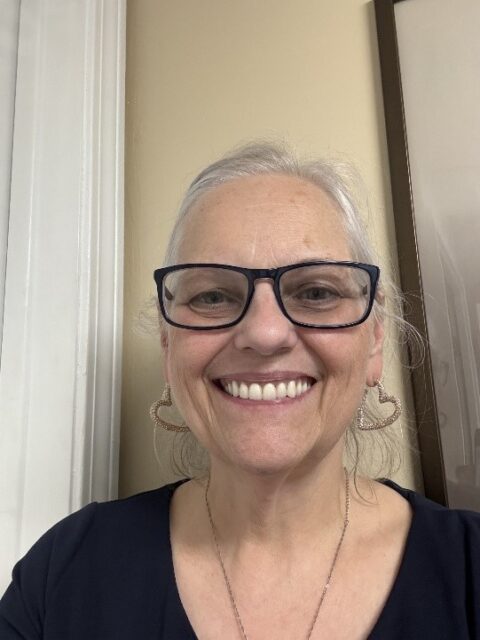
Carolyn Valli is the CEO of Central Berkshire Habitat for Humanity, a transformative leader whose vision and dedication have significantly expanded the organization’s impact. Under her leadership, Habitat has grown from building just one home per year to a projected 27 homes over the next three years, having already completed 50 homes to date.
With a deep commitment to community development, Carolyn has played a pivotal role in securing major grants that have boosted Habitat’s capacity, enabling innovative housing solutions and expanding support for families in need. Her leadership extends beyond home construction—she champions workforce development, energy efficiency initiatives, and partnerships that strengthen neighborhoods.
Carolyn’s strategic approach, grant-writing expertise, and unwavering dedication have made her a driving force in affordable housing and community empowerment in the Berkshires and beyond.
In the News
- Efforts in Springfield, Greenfield turn vacant properties into family homes (The Springfield Republican)
- Local non-profit addresses Springfield’s vacant homes crisis (News 22, WWLP)
- Mayor Sarno and Springfield City Officials attend MassINC Reclaiming Vacant Property Conference (City of Springfield)
